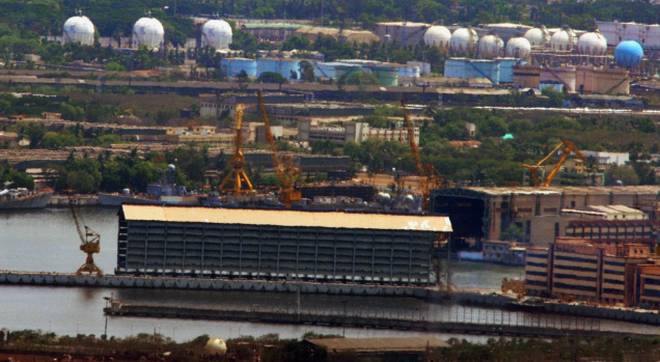Taxation in the country has been very complicated for decades. Especially indirect taxation was very complicated with every state having different laws and structures. Modi government brought the most comprehensive indirect tax reform since independence in the form of GST. Now the government is ready to overhaul the customs duty architecture to boost cross-border trade. “We want to go in for something which will be radically different from what we have been doing. We are going to venture into a new territory called faceless assessment. We could start a pilot in a month’s time,” said S Ramesh, chairman of Central Board of Indirect Taxes and Customs (CBIC).
PM @NarendraModi is set to unleash the next generation of reforms with changes to Customs Duty architecture that will do away with face-to-face interaction with officials, enable e-Tracking of shipments & allow uninterrupted movement of merchandise https://t.co/bsLPJ1cGHo pic.twitter.com/dwl3GTQ2aL
— Piyush Goyal (मोदी का परिवार) (@PiyushGoyal) December 4, 2018
After the implementation of this scheme, the goods landing on a port in Mumbai could be assessed in Kolkata, Chennai or Delhi. CBIC also seeks to promote specialization with streamlining of particular segments like motorcars, electronic exports at one location. This would enhance specialization and thus efficiency would also increase. “This is where the world is going. This is one of the best practices of the World Customs Organisation. Scope for rent seeking will absolutely vanish and speed of clearance will go up manifold,” said Ramesh. The ‘faceless assessment’ will allow an importer to get goods assessed without physical interaction and the cargo would also be released from ports without physical interaction. For low-risk commodities, the trusted traders will receive an alert through an email or an SMS that their goods are ready for collection.
Easing out cross-border trade will further improve India’s ranking in Ease of doing business. For economic growth it is necessary to make business operations easy, when Modi government came to power India ranked 142 out of 189 economies in the World Bank’s Ease of Doing Business Report. Prime Minister shared a vision to bring the country amongst top 50 nations in the ranking and worked consistently in the last four years to achieve the said goal. The reforms of the last four years resulted in a jump of 65 positions to 77th from 142nd. The ranking for ‘trading across borders’ saw the second highest improvement after construction permits, it rose to 80 from 146 last year. Ministry of Commerce and Industry has been proactive in making imports and exports easy. The time and cost of import and export in terms of documentation and border compliance has also been made more efficient.
The target of the government was to bring India to a below 50 rank in Ease of Doing Business ranking index. The different groups including custom department are working to take further measures to improve rankings in respective sections. The country is still ranked 80th on trading across borders, therefore, there is significant space for further improvement. “Virtual groups have been formed. We feel we need to build upon what has been done,” said Ramesh.
“The customs proposes to expand the E-Sanchit facility, which allows importers to upload all documents online, to exporters,” he added. India plans to become a manufacturing hub in upcoming years and it is necessary to make cross-border trade easy, to facilitate exports and integrate the country’s economy to global markets.




















